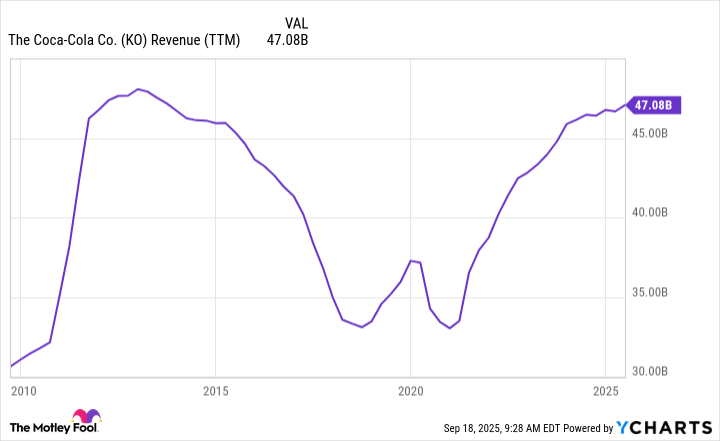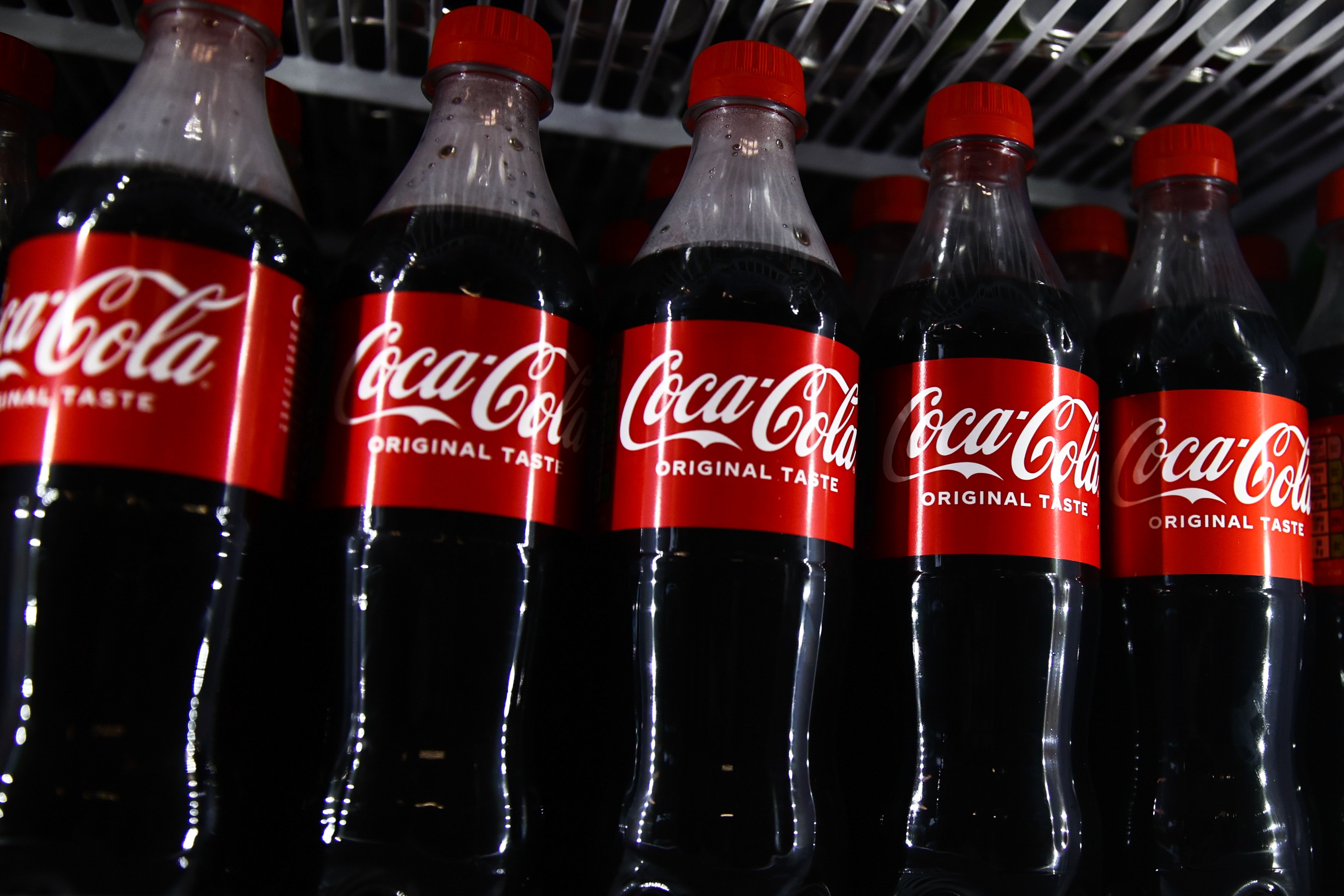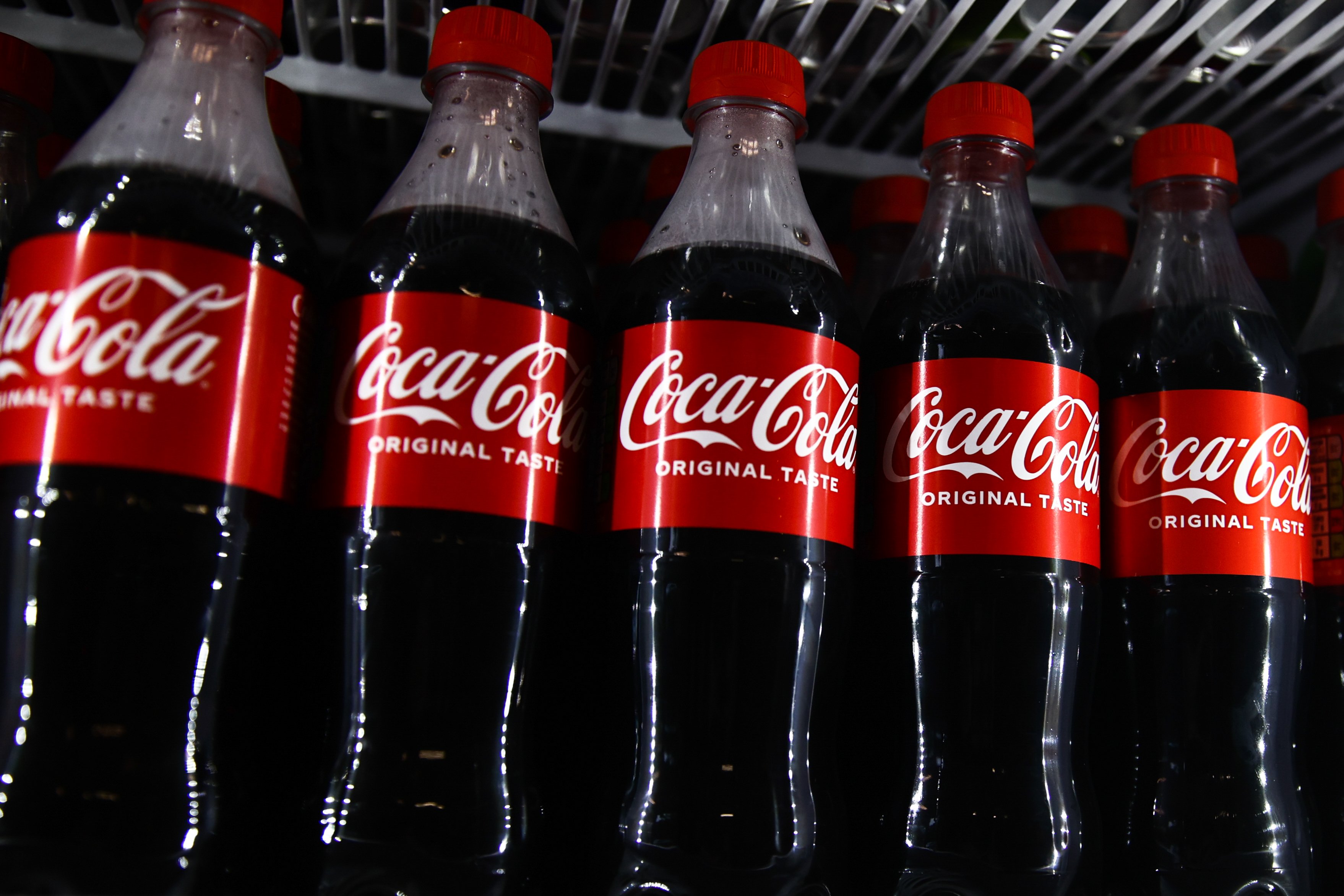Coca-Cola (KO 0.09%) is the largest beverage company in the world, with $47 billion in trailing-12-month sales. It makes beverages you know and love, and you might be surprised to hear that the stock is back to lagging the market this year after a strong run for a few months.
There might be other surprising things you'd want to know about Coke before you buy the stock. Here are five important things to keep in mind.

Image source: Getty Images.
1. Revenue is still off the company record
It might be hard to believe, but Coca-Cola's sales had been sagging for years before it finally started making a comeback with new management a few years ago. The pandemic threw a wrench in its recovery, and it's finally back on track.
It's common for companies to brag that they reached record highs in a given quarter, but that's expected of any stock growing in any capacity. It might not raise any flags if management doesn't tout this, since it's a given, but in Coca-Cola's case, sales are still below the company's all-time high of $48 million in 2012.
KO Revenue (TTM) data by YCharts
It's been reporting impressive growth over the past few years despite inflation, demonstrating its brand power and pricing power. The way it's grown since the pandemic started, which you can clearly see on the chart, is quite a feat. If the economy gets a boost from newly lower interest rates, Coca-Cola should get another boost, too, and finally surpass its previous highs.
2. It owns 200 brands
Although the Coca-Cola brand stands out as a reliable money maker, Coca-Cola, the company, owns around 200 brands globally. Some of these brands are beverages you know and love, like Sprite and Minute Maid, and 30 of its brands bring in at least $1 billion in sales. However, it also owns many small, regional brands.
If that sounds like a lot, consider that it slashed its brand count by about half a few years ago when it restructured to save money and become more agile. It cut out small, local brands that were responsible for minimal volume and sales to free up resources for its more prominent brands.
That doesn't mean it's done with acquisitions. In fact, acquisitions are a major part of its growth trajectory. When it acquires new brands and integrates them into its unmatched global distribution system, it can easily cut costs and add higher-margin sales. Its new strategy is to focus on global-scale acquisitions that add greater value to the whole.
3. It's a Dividend King
Many investors likely know this already, but it's worth understanding the implications regardless.
Dividend Kings have raised their dividends for at least 50 consecutive years. Coca-Cola has one of the longest streaks on the market at 63 years. That means it started its streak in 1962, and it has managed to grow and have enough cash to operate and innovate as well as pay shareholders through almost every kind of event conceivable, including hyperinflation, global pandemics, market crashes, and more.
That's incredible resilience and stability, which demonstrates the company's ironclad commitment to creating shareholder value.

NYSE: KO
Key Data Points
4. It's Buffett's longest-held stock
Warren Buffett bought Coca-Cola stock in 1988, making it Berkshire Hathaway's (BRK.A +0.28%)(BRK.B +0.14%) longest-held stock. Today, it accounts for 8.8% of Berkshire's total equity portfolio.
Buffett constantly sings its praises as a global brand, an excellent dividend stock, and a company that doesn't have to invest a lot of money to make a lot of money. It's one of the premier examples of what he thinks is a great business. He has said he would never sell it as long as he's in charge of Berkshire Hathaway, and that time is coming to an end this year. However, given how much money Berkshire Hathaway makes from its dividend, it would be surprising if it sold out of Coca-Cola stock.
5. It's usually a market laggard
I saved the worst for last, but investors must understand the risks before making a purchase. Coca-Cola and its stock have some great features. It offers stability and an excellent dividend, as well as safety when the market goes awry. But don't buy Coca-Cola to beat the market.
That's not to say it can't or won't, but it usually doesn't. Over the past three decades or so, it has rarely notched a market beat, and the times that it has have been when the market is down. That's one of the reasons it could offer value for your portfolio.
It was beating the market earlier this year when tariff news made investors nervous and the market plunged. Now that the market is happy again, Coca-Cola stock is falling behind. But its other features can be very valuable under certain circumstances.








